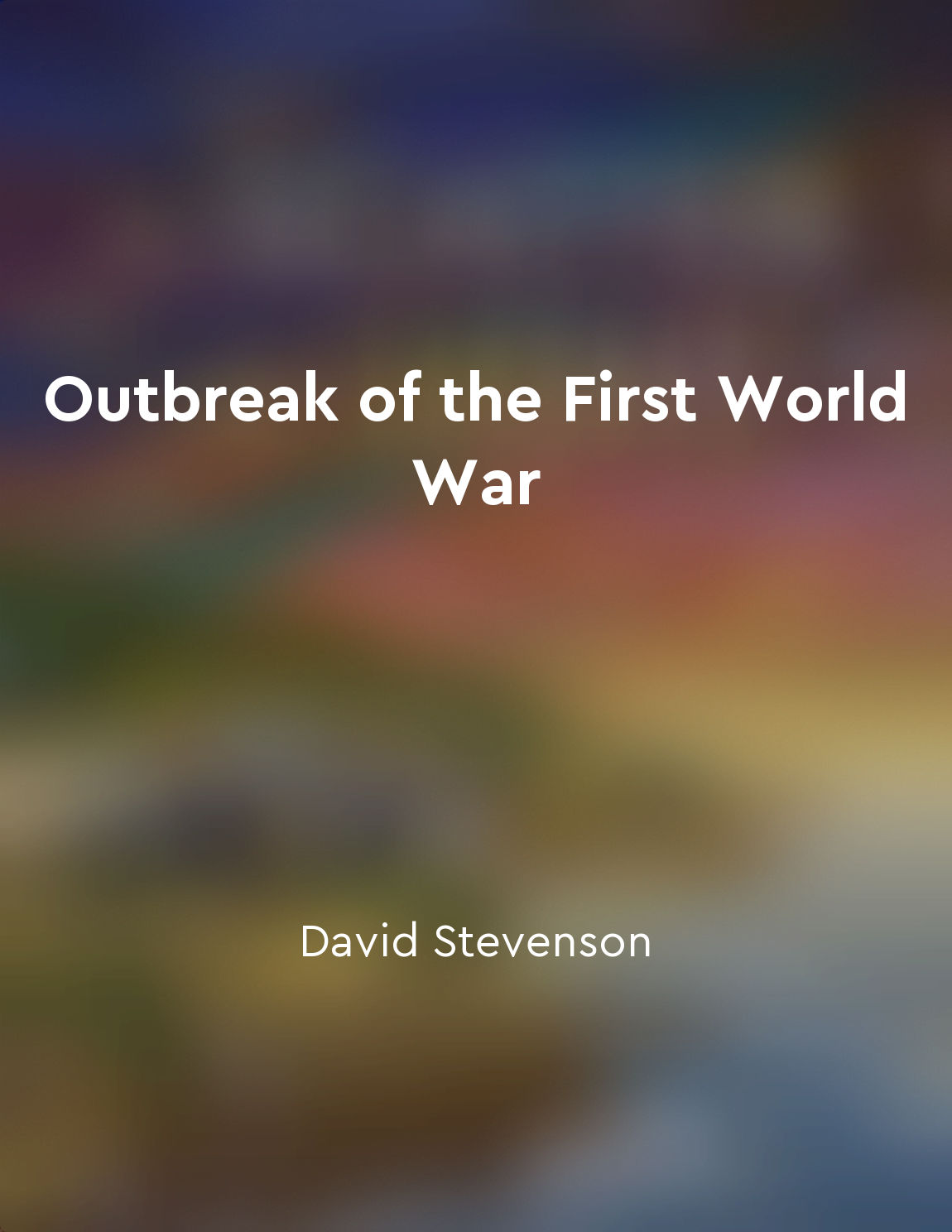Assassination of Archduke Franz Ferdinand sparks crisis from "summary" of The Origins of the First World War by Annika Mombauer
The assassination of Archduke Franz Ferdinand, heir to the Austro-Hungarian throne, on 28 June 1914, in Sarajevo, sparked a crisis that would ultimately lead to the outbreak of the First World War. The assassination was carried out by a Bosnian Serb nationalist, Gavrilo Princip, who was a member of the Black Hand, a secret society seeking independence for South Slavs from Austro-Hungarian rule. The assassination set off a chain of events that escalated tensions between Austria-Hungary and Serbia, as Austria-Hungary blamed the Serbian government for supporting the assassins. In response, Austria-Hungary issued an ultimatum to Serbia, which contained demands that were intentionally designed to be unacceptable to the Serbs. Serbia, feeling threatened by Austria-Hungary's aggressive posture, turned to its ally, Russia, for support. The crisis quickly drew in other major European powers as alliances and rivalries came into play. German...Similar Posts

Despite the challenges we face, peace is possible through collective action
The history of the 20th century is marked by unprecedented levels of violence and conflict, with two World Wars and numerous ot...

Declaration of war
The declaration of war was a pivotal moment in the outbreak of the First World War. It was the official announcement by one sta...

Stalemates in trench warfare
Trench warfare during the First World War was characterized by a series of stalemates, where neither side was able to make sign...
Trench warfare becomes defining feature
The evolution of warfare during the First World War was marked by the emergence of trench warfare as a defining feature. This m...
Ancient civilizations shaped human history
Throughout the course of human history, ancient civilizations have played a pivotal role in shaping the world as we know it tod...

Rapid spread of hostilities
The rapid spread of hostilities is a central feature of the outbreak of the First World War. In the summer of 1914, a series of...
The military mobilization of powers set off a chain reaction
When one nation mobilized, others followed. The mobilization of men, money, and munitions set off a chain reaction of fear and ...
